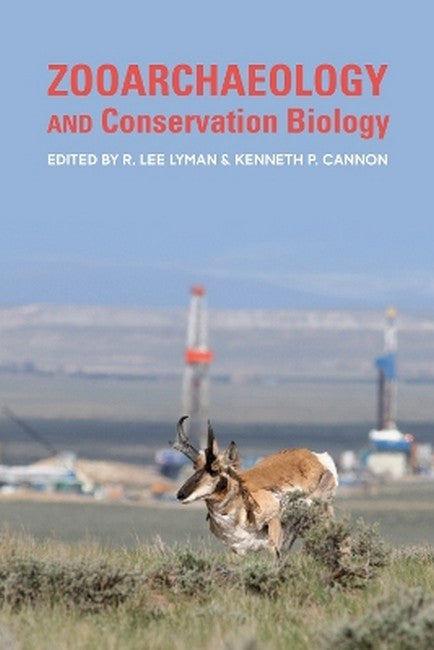R. Lee Lyman is professor of anthropology, University of Missouri, Columbia. Kenneth P. Cannon is archaeologist with the National Park Service Midwest Archaeological Center, Lincoln, and doctoral candidate in the department of anthropology and geography, University of Nebraska.
Request Academic Copy
Please copy the ISBN for submitting review copy form
Description
List of Figures List of Tables Foreword Preface and Acknowledgments 1. Applied Zooarchaeology, Because It Matters ~ R. Lee Lyman and Kenneth P. Cannon 2. Doing Zooarchaeology as if it Mattered: Use of Faunal Data to Address Current Issues in Fish Conservation Biology in Owens Valley, California ~ Virginia L. Butler and Michael G. Delacorte 3. Zooarchaeology and Wildlife Management in the Greater Yellowstone Ecosystem ~ Kenneth P. Cannon and Molly Boeka Cannon 4. Where the Muskox Roamed: Biogeography of Tundra Muskox (Ovibos moschatus) in the Eastern Arctic ~ Christyann M. Darwent and John Darwent 5. The Potential of Zooarchaeological Data to Guide Pinniped Management Decisions in the Eastern North Pacific ~ Michael A. Etnier 6. Zooarchaeological Implications for Missouri's Elk (Cervus elaphus) Reintroduction Effort ~ Judith L. Harpole 7. Post-Contact Changes in the Behavior and Distribution of Rocky Mountain Bighorn Sheep in Northwestern Wyoming ~ Susan S. Hughes 8. Prehistoric Biogeography, Abundance, and Phenotypic Plasticity of Elk (Cervus elaphus) in Washington State ~ R. Lee Lyman 9. Archaeological Evidence of Pronghorn (Antilocapra americana) Migration in the Upper Green River Basin of Wyoming: Implications for Wildlife Management ~ Paul H. Sanders and Mark E. Miller 10. Ecological Change in Western Utah: Comparisons Between a Late Holocene Archaeological Fauna and Modern Small-Mammal Surveys ~ Dave N. Schmitt 11. Archaeofaunal Evidence of the Native Ichthyofauna of the Roanoke River in Virginia and North Carolina ~ Thomas R. Whyte References Cited Contributors Index
This volume shows the relevance of an often-minimized set of archaeological data to enlightened knowledge and understanding of ecological processes." - James Enloe, University of Iowa "An important and intriguing book, full of implications for both past and future." - Donald K. Grayson, University of Washington

